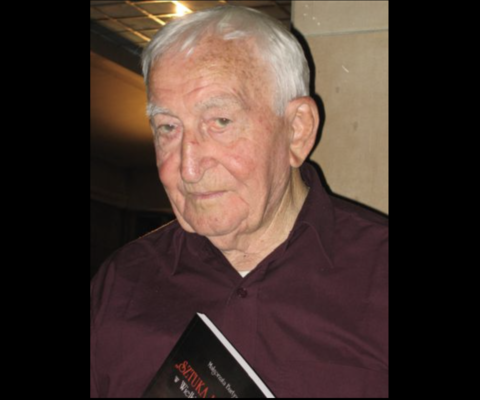In Chludów, Greater Poland, Archbishop Stanislaw Gądecki, Metropolitan of Poznan, took part in the ceremonial completion of the Rogatory Tribunal in the beatification process of Father Marian Żelazek, a Verbist missionary, and protector of lepers. Now, the dossier will go to India.

Photo by Mariusz Kubik, http://www.mariuszkubik.pl – own work, http://commons.wikimedia.org/wiki/User:Kmarius, CC BY 2.5, https://commons.wikimedia.org/w/index.php?curid=890254
The persons responsible for conducting the process in Poland were Fr. Rafal Pajszczyk of Poznań – President of the Rogatory Tribunal, Fr. Henryk Kałuża SVD of Nysa – Vice-Postulator, Fr. Jan Wróblewski SVD of Chludów – Promoter of Justice, Fr. Franciszek Bąk SVD of Chludów – Notary, and Fr. Wojciech Grzymisławski SVD of Chludów – Notary.
Father Marian Żelazek’s missionary journey, which began in 1950, was outlined during the Mass by vice-postulator Father Henryk Kałuża SVD.
„By ship route across the seas, he reached Bombay and across the eastern side of India to the state of Orissa to the diocese of Sambalpur, which had just been born. There, he began his work as a teacher, an educator of young people, and then as an inspector of more than 170 schools. In 1975, the fathers wondered whether to start a dialogue with Hinduism. Still, no one was particularly keen to start this dialogue. It was a challenging undertaking. That’s when Father Marian came forward and was appointed as the one who went to Puri, the holy city of Hinduism, and there began his work, not only in the pastoral sense but also in the apostolic forum. He began caring for lepers and made a garden of hope out of hell. It went on for a long time; Fr. Żelazek would constantly have the dialogue in his heart and significantly contribute to it. So, when he died, the high priest, standing over Father Marian’s grave, cried and said – when Father came to us, we didn’t like him, but now I am standing over the grave of my closest brother. When Father Marian was carried to the convent cemetery, the entire road was lined with people who wanted to honor him, even though it was several hundred kilometers away, Father Kałuża recounted.
Marian Żelazek was born on January 30, 1918, in Paledz near Poznan. After graduating from St. Mary Magdalene Gymnasium in Poznań in 1932, he entered the Lower Seminary of the Verbist Fathers in Górna Grupa. He began his novitiate on September 8, 1937, in Chludów. On September 4, 1939, he took his first vows, but as early as May 1940, he was arrested along with other Verbists from Chludow and deported to camps in Dachau and then Gusen. After the war ended, he completed his theological studies at Anselmianum University in Rome, where he was ordained a priest on September 18, 1948, and left for India. In 1950, he went on a missionary assignment to the Sambalpurm mission station in the northern part of the Indian state of Orissa. For the first 25 years, he worked among the original Adiba Adibas people, nomads living in the jungle. He established a lower seminary for the diocese of Sambalpur. On June 1, 1975, he was transferred to Puri on the Bay of Bengal in the southern part of the state of Orissa. Fr. Żelazek began working among the poorest fishermen and more than a thousand local lepers. He established a colony for them, providing treatment, housing, food, and work. He also created a school and a shelter for children from leper families. He ensured the colony had a small hospital, a charity kitchen, and a network of self-help programs such as sewing courses, gardening, agricultural courses, a chicken farm, etc.
In Puri, Fr. Żelazek also built the Church of the Immaculate Conception of the Blessed Virgin Mary. His candidacy for the Nobel Peace Prize was proposed in 2002 and 2003. On February 22, 2006, the Polish Senate unanimously recognized Fr. Żelazek as the 2006 Man of the Year. Fr. Marian Żelazek died on April 30, 2006, on his way home from the leper village in Puri. He was buried at the Verbist cemetery in Jharsuguda, India.